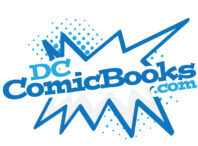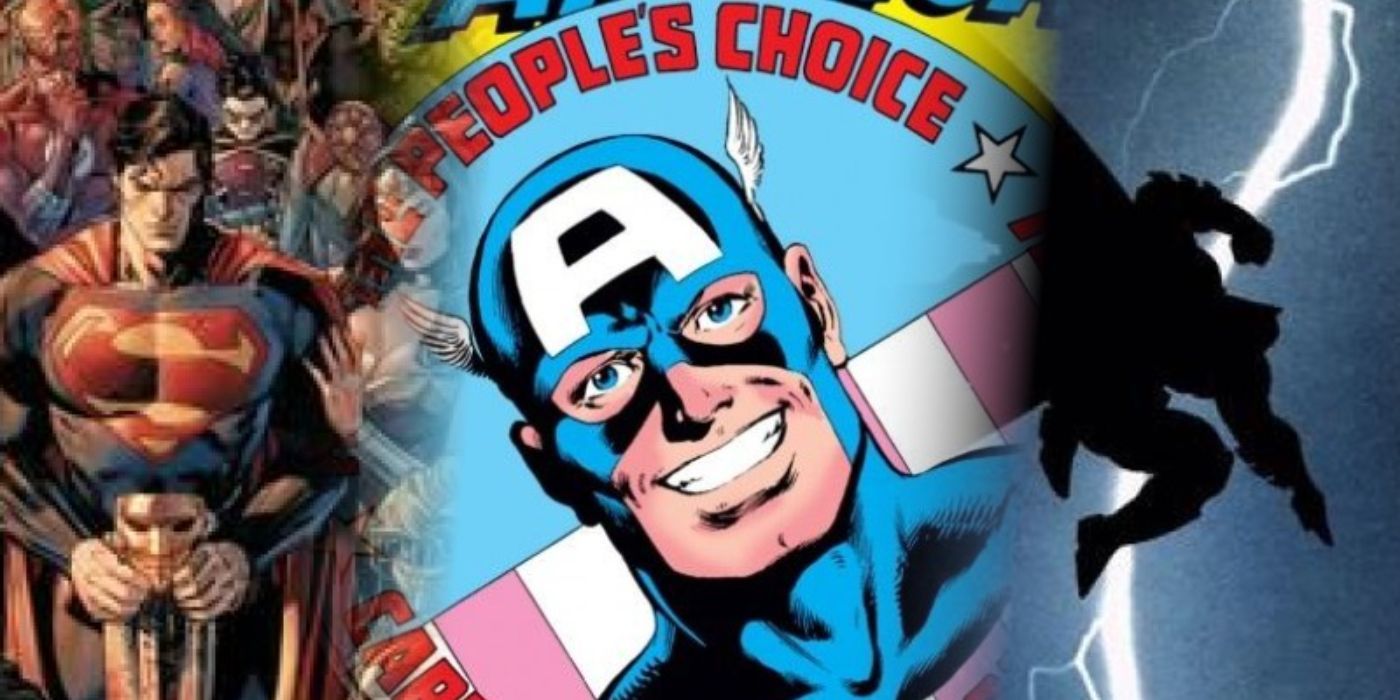DC Comics has long had a reputation for being a more lighthearted, traditional, and “nice” universe of superheroes and supervillains. On the other hand, Marvel Comics’ shared universe is supposedly one that’s grittier, more relatable, and more realistic. There are legitimate reasons for these assumptions, but they aren’t as set in stone as fans of either company believe.
In actuality, the DC Universe’s more lighthearted or overtly heroic elements and characters are a minority. The publisher does have, however, several distinctly dark and dysfunctional alternate universes that upend the more positive happenings of their mainstream comics. Add in the history of Vertigo and other books published by DC, and it soon becomes clear which one is more consistently dark.
RELATED: Tom King Says Wonder Woman is Too Perfect
Both Marvel and DC Have “Dark and Gritty” Characters
Street-level characters who abound in the muck and mire of life are very common in the Marvel Universe. Examples include The Punisher, Daredevil, Luke Cage, Jessica Jones, Moon Knight, and arguably Ghost Rider, though the latter also veers more into the supernatural. These characters usually fight street criminals, organized crime, and drug/weapons cartels, with even their rogues galleries of recurring villains being somewhat removed from the more extravagant foes that face other Marvel heroes. All of these characters have a tone that leans toward the somber, if not the outright dour. Under Frank Miller’s pen, Daredevil transitioned from a low-rent swashbuckling Spider-Man wannabe to a noir ninja of the night. For the most part, this tone and scope have remained a defining feature of the character, heavily influencing his acclaimed Netflix TV show. The same goes for the rest of these characters, whose adventures aren’t quite fun trips to the zoo.
Of course, that’s not to say that DC is lacking in these concepts. Obviously, Batman and his extended family are just as dark and gritty, but they aren’t the only street-level heroes in the DC Universe. Green Arrow, The Question, Black Canary, and the Ted Kord version of Blue Beetle have all taken the fight to the mean streets of their respective cities. Green Arrow and The Question, in particular, had brutally grounded comics in the late 1980s, the likes of which made many of Batman’s adventures seem tame. That was also the case for Wesley Dodds, the Golden Age Sandman, whose series Sandman Mystery Theatre gave the Justice Society member a much darker story during his early years. It’s somewhat expected that these characters are less than lighthearted, but DC also has several other major characters whose stories aren’t the happy tales that some might expect.
RELATED: A Forgotten DC Comics Anthology Series is Perfect for a Comeback
Many of DC’s Biggest Characters are Far from “Lighthearted”
Most of the members of DC’s Justice League haven’t exactly been lighthearted or “campy” since before Crisis on Infinite Earths. For instance, Wonder Woman has long since been written as a warrior who’ll use a sword as soon as her Lasso of Truth. In fact, she decisively killed the god Deimos in her first major new story arc, thereafter making absolutely no moral qualms or melodramatic justifications for it. Aquaman and Hawkman have been shown to behave similarly, and their stories all have a tinge of dark adventure and fantasy to them. In fact, the Peter David Aquaman (in which the character lost his hand and became particularly edgy) was preceded by The Atlantis Chronicles, which was essentially Aquaman’s version of Game of Thrones.
The Green Lantern books have been serious since the Bronze Age, and the same goes for Teen Titans. It’s only a few major properties that still maintain their traditional optimism, with these being Superman, The Flash, and DC’s Captain Marvel/Shazam. Even then, these characters aren’t exactly Pollyannas anymore. Superman has starred in dark, more mature books such as Superman: Earth One and Superman: American Alien, while The Flash was the killer in the controversial Heroes in Crisis. Conversely, Geoff Johns’ New 52 Shazam almost completely did away with the hero’s trademark optimism and whimsy.
In the Marvel Universe, there aren’t really any major heroes who fit this lighthearted tone besides perhaps the Fantastic Four, Spider-Man, and Ant-Man. The latter fills said role mainly due to the wackiness of his stories, though Spider-Man is known for his down-to-earth tone and wisecracks. This is coupled with tons of drama and loss, but this really isn’t too different from much of what happens with Wally West/The Flash or Nightwing. Ms. Marvel exudes a lot of peppy, youthful cheer, but she’s definitely not the norm. The F4 are even seen by some fans in a less-than-positive light due to the campy, almost throwback nature of the property. The major Avengers are all fairly serious in tone, and this includes the paragon-esque Captain America. When stacked against each other, this makes the two universes fairly even in terms of darkness. DC may still edge things out, however, due to its numerous dark universes.
RELATED: DC’s British Invasion Changed The Comic Industry For The Better
DC’s Bleakest Futures and Events Make It Darker Than Marvel
Despite being known for having archetypal paragons as heroes, the world of DC Comics is also the home of several bleak and saddening alternate futures and timelines. One example is The Dark Knight Returns, which made Batman a broken outlaw while Superman was a government stooge. Green Arrow even lost his arm in a conflict with the Man of Steel, showing how upside-down the world had become. Kingdom Come had the Justice League go into exile as violent antiheroes became the norm. While this new generation was chastised, the older heroes (namely Superman) were rightfully given grief as well due to their abandonment of humanity.
The Injustice games and comics combined these ideas, with a grief-stricken Superman becoming an iron-fisted tyrant. Even some of the most popular events in the mainstream continuity are dark, such as Blackest Night (which resurrected dead heroes as zombies), Forever Evil (which put the villains in charge while the Justice League was supposedly dead), and the aforementioned Heroes in Crisis. Marvel has similar events (the two Civil War storylines), but those don’t feature heroes who are constantly called “outdated” or “campy.” While not a “future,” the Doomsday Clock storyline crossed the DC Universe over with the cynical deconstruction Watchmen, explaining the far gloomier New 52 reboot and the wholesale erasure of legacies.
RELATED: Why One Of DC’s Most Underrated Vertigo Stories Needs An Adaptation
DC also had the Vertigo imprint, which once published mature-oriented books with DC characters. Swamp Thing, Constantine, and Animal Man had stories far darker than those given to Man-Thing, Doctor Strange, or Black Panther, and these books existed years before Jessica Jones’ introduction in Alias. Likewise, the adult Marvel MAX titles weren’t in the mainstream Marvel Universe for the most part, reducing any impact on its darkness or light. Marvel also only has three major “dark future” stories: Earth X, Old Man Logan, and the contentious Spider-Man: Reign, the latter of which is seen by some as an egregious Dark Knight Returns imitation.
Perhaps the biggest sign of DC’s darkness is the fact that multiple events and storylines have involved Gotham City being destroyed, upended, or otherwise thrown into chaos. The city is seemingly never able to become functional, and it’s not the only such doomed location in the DC Universe. Bludhaven, Hub City, and arguably even Star City are the same way, and they usually have only one defender or, at most, a group of powerless vigilantes to patrol the streets. Daredevil’s Hell’s Kitchen is far from heaven on Earth, but it’s only one part of a city that otherwise has Spider-Man and the Fantastic Four. When stacked against both universe’s reputations, it certainly makes DC’s “lighthearted” associations questionable, especially since it seems to be the most consistently dark of the bunch.
The DC Universe may sometimes be seen as outdated or campy, but its heroes and their stories are largely just as dark — if not darker than — Marvel’s. Read More

